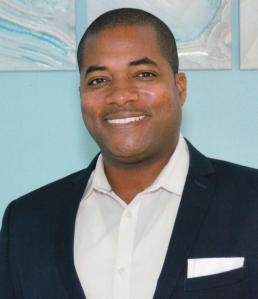Millennials – and GenZers – are experiencing more financial strain, emotional stress and physically exhausting.
ATLANTA, GA, UNITED STATE, January 19, 2024 /EINPresswire.com/ -- Alonzo Ford, owner of a 20-year-old care provider for the developmentally disabled, says the new year is creating new opportunities – and potential challenges in everyone's life. Recent data show that more than 2.5 million Americans are taking care of their elderly parents – and that number is going to continue to grow. What’s becoming another reality is that there are more than 1.7 million adults in this country who are developmentally disabled. The added responsibility for Millennials – and GenZers – is a source of financial strain, emotional stress and physically exhausting.One of the critical decisions a family must consider nowadays is how to best take care of their loved ones, without the feeling of overwhelming guilt and remorse that comes along with that. If the loved one is currently living in their home, then there is additional pressure on everyone in the family. For the family, the big move is to place their family member into a home where they can get the proper care they need to live as rich, fulfilling and healthy live as possible.
The Mayo Clinic identifies several signs of caregiver stress:
• Feeling burdened or worrying all the time.
• Feeling tired often.
• Sleeping too much or not enough.
• Gaining or losing weight.
• Becoming easily irked or angry.
Ford offers these three tips on how caregivers can better take care of themselves and make the best decision on what to do.
Carve Out “Me Time”
Each family member has played an important role in everyone's life. In most cases, they have sacrificed a great deal to raise their children to become successful, or someone has cared for them for decades with little regard for his or herself. What happens with so many family caregivers, especially those taking care of the developmentally disabled, they are trying to balance their own family life, their work and their loved ones at the same time. Ultimately, the result is burn out, fatigue and sometimes resentment. No one wins. Everyone in the family only gets part of that caregiver at any given time. What’s important is that the caregiver take the time to breathe. Taking a walk or run can be relaxing. Finding time to meditate can help clear their mind. Setting aside dedicated time where they are solely focused on their spouse or your children will help strengthen their relationship with their family.
Know the Limitations
Each person is likely to feel that they must do everything. Many believe they have superhuman powers, losing sleep, missing meals, and spending money they don’t have. The reality is no single person can do it all. Being transparent and honest with loved ones and other family members is essential. Most importantly, individuals can let their loved one know what they're not able to do. Sharing a schedule and a budget will help everyone know how the caregiver is going to do his or her best to provide the best care for their loved one.
Talk to Someone
It may sound cliché, but a person can’t take care of someone else if they’re not taking care of themselves. The stress can be debilitating. It's important to that they find someone to confide in. This could be a spouse or another family member, but the caregiver may want to find a mental health counselor to speak freely about his or her emotions and how best to manage them. If the caregiver wants to live a long healthy life, they must be true to themselves, acknowledging their inner turmoil so that they can prevent any stress-related illnesses.
These three tips are just a few of the steps a caregiver can take. What’s important to remember is that they are not alone. There are experts and resources available to help them on this journey.
Alonzo Ford, CEO of Lowe’s Guardian Angel, a trusted and established provider of care of nearly 20 years for developmentally disabled, senior citizens and veterans.
Neil Foote
Foote Communications
+1 214-448-3765
email us here


